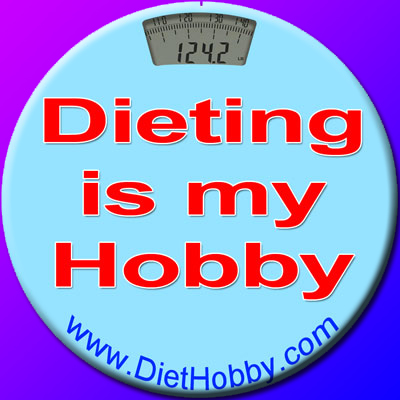What is Hunger?
- POSTED ON: Jan 31, 2013
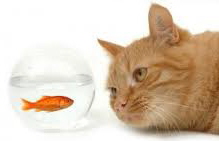
Below is an interesting video presentation by Paleo Guru,
J. Stanton of Gnolls.org, on his view of the way our mental and physical processes interact to produce Hunger,
“Palability” and “reward” are not actual properties of food. Our likes and wants are subjective properties that we assign to food based on our past experiences and our current state of satiation and satiety."
How Often Should We Eat?
- POSTED ON: Jan 30, 2013
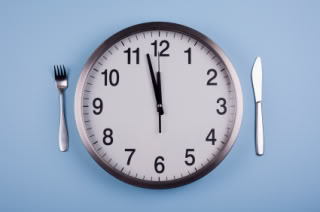
What about eating frequency? How often should we eat?
Should we eat 3 Square Meals?
Or should we eat 6 Small Meals?
Or should we eat only inside a window of 8 hours or 5 hours?
Or should we, intermittently, have days with only one small meal, or even zero food in a total water fast?
Or should we eat whenever we feel Hunger?
Each of these “Diets”, “Non-Diets”, “Ways-of-Eating”, or “Lifestyles” claims that Scientific Research supports their individual position.
So what DO we do?
The following article by Dr. Yoni Freedhoff of WeightyMatters, supports my own personal position on this question.
Does New Study settle the
3 Square vs. 6 Small vs. the 8 hr Diet Debate?
So this month yet another study in a never-ending line of studies looking to compare the impact of meal frequency on fullness and biochemistry came out. This one suggested that small frequent helped decrease energy intake in normal weight men.
Honestly I pretty much disregard all of these studies.
Not because I'm doubting or questioning their results, just that I don't think their results really matter.
What I mean is that all of these studies fail to address the practical aspects of living with their recommendations, and as a clinician, that's really all that matters to me.
I've seen people controlling calories, loving life and preserving health with 6 small meals daily. I've seen people do the same on 2, 3, 4, and in some cases even 1 meal a day.
Regardless of the research that comes out, what matters more than what a physiology paper says is how you personally feel.
In my office we do tend to start people on small and frequent meals and snacks. But if that doesn't suit or help the individual we'll shift to 3 square meals. We've also recommended the intermittent fasting style that's suddenly finding some traction on the diet book shelves.
You need to find a life that you enjoy, and just because a new study or diet book suggests there's a "better", or "right", way, if you don't happen to enjoy it, it just isn't going to work.
The specific new study referred to is: Psychology and Behavior
www. sciencedirect.com/science/article/pii/S0031938413000243
According to all of the scientific research I’ve read, when we get right down to it, any actual “Health” or “Metabolic” Benefit Differences between all of these eating plans are truly miniscule, and therefore, not even worth the individual effort of personal consideration. The question to consider is which one can we DO?
I ask myself:
- Which Eating Behavior will work for ME in MY weight-loss or maintenance efforts?.
- Which Behavior will allow ME to consistently eat less than, or the same as, the amount that My body uses for energy?
- Is one Eating Behavior more manageable for ME than another?
- Which one can I consistently stay on?
- Can I live with one of these Behaviors as a lifetime Habit?
Diets Work
- POSTED ON: Jan 29, 2013

We need to stop lying to ourselves and quit swallowing all of the media headlines.
Diets aren’t bad, and we aren’t starving or ruining our metabolisms.
Chances are you won’t lose weight fast.
Stop wasting time looking for a silver bullet.
It’s not there.
![]() The word “diet” means the stuff one eats.
The word “diet” means the stuff one eats.
Everyone is on some sort of diet.
Diets, meaning calorie restriction, DO work.
If we restrict what we eat below what we need each day to run our bodies,
the scale will move. If not, hurry over to a research lab
and let them write you up in a medical journal,
because you’ve figured out how to create energy from nothing.
Adopting some TEMPORARY habits, losing weight,
and then picking up those previous habits again doesn’t work.
The weight always returns.
![]()
Live one way, lose weight. Live another way, gain weight.
Go figure.
Diets work. ![]()
While you’re arguing with me about it, I’ll be watching my calories.
Three Diet Myths
- POSTED ON: Jan 28, 2013
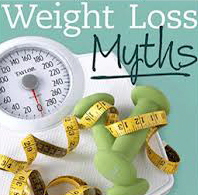
Three of
the most frequent
Diet MYTHS are:
First, the idea that we need to detoxify or cleanse our bodies;
Second, the idea that we need a plethora of dietary supplements to stay healthy; and
Third, the idea that eating specific foods or products will increase metabolism and make us lose weight.
Notice how often these three Myths are associated with the marketing of unfounded ... (and even potentially harmful) ... diet products.
What Stops Us?
- POSTED ON: Jan 27, 2013
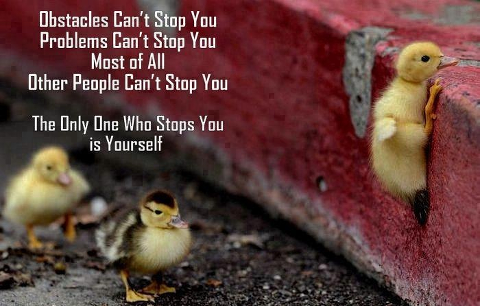
Page 1 | Page 2 | Page 3 | Page 4 | Page 5 | Next Page >> Oldest >>



